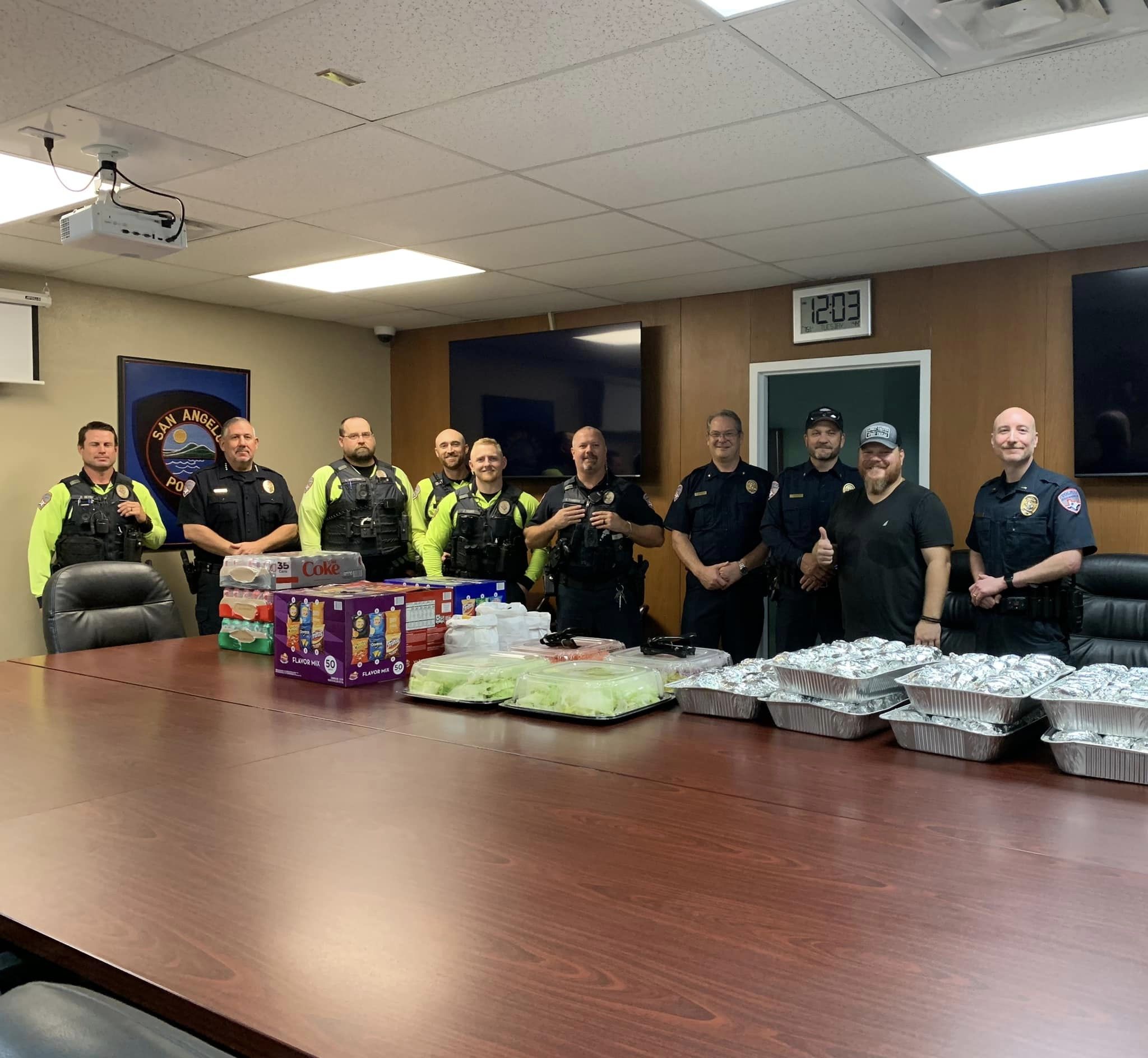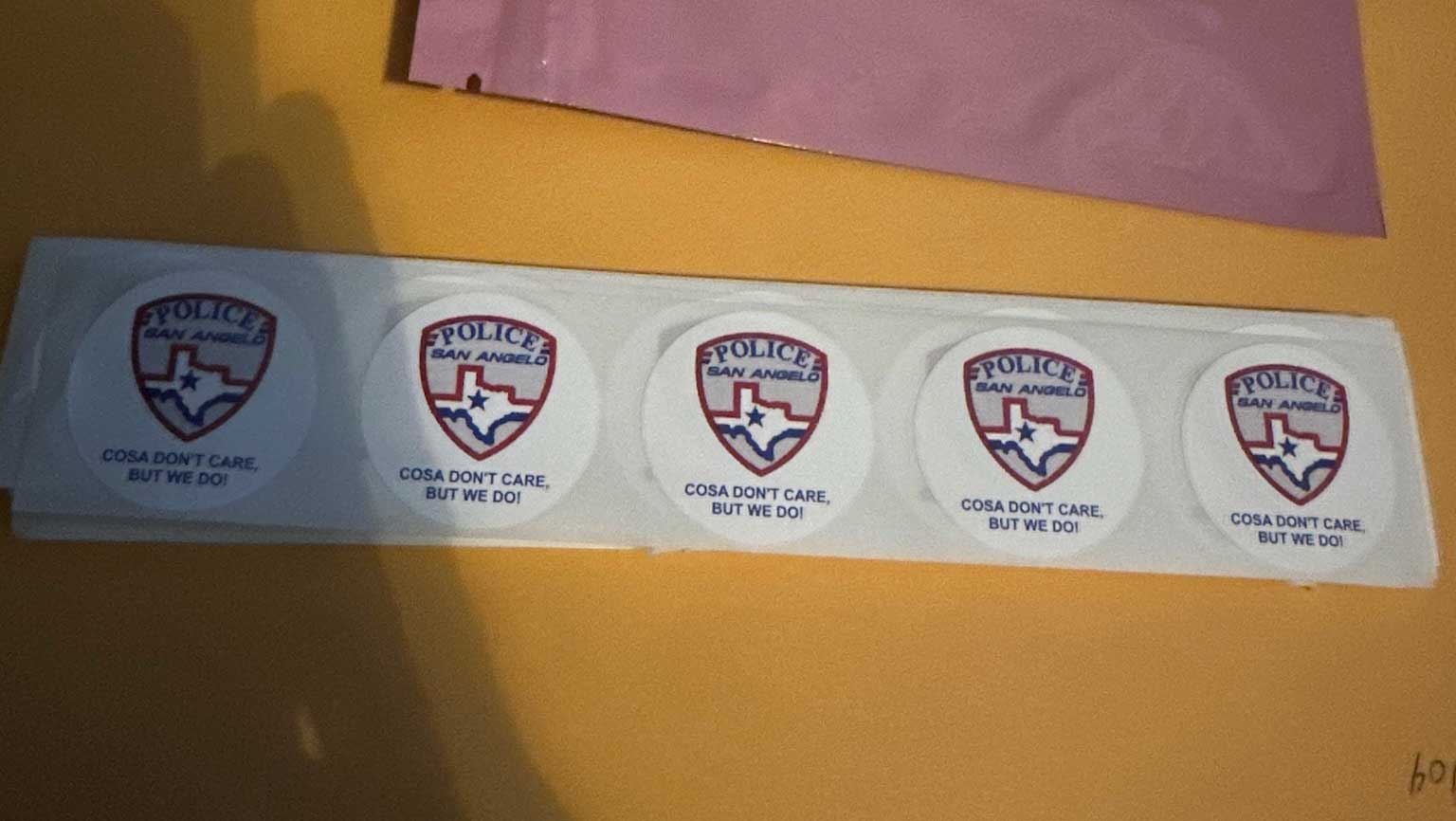SAN ANGELO, TX — In a heartfelt display of support for the San Angelo police, Tim Condon, owner of Lonestar Cheeseburger and head of the Angry Cactus West Texas Restaurant, delivered a morale-boosting 125 cheeseburgers to the department on Monday. Each cheeseburger came wrapped in foil sealed with a sticker showcasing the SAPD logo alongside the slogan, “COSA Don’t Care But We Do!” This gesture, more than a simple act of kindness, carries a weighted message amidst ongoing discussions about increasing police pay.
The pointed stickers are a nod to the tension between the San Angelo Police Officer’s Coalition (SAPOC) and the City of San Angelo (COSA), stemming from the critical issue of police pay—a recurring debate that resurfaces roughly every five years. SAPOC has raised the alarm that without immediate, substantial pay increases, they anticipate nearly 10% of officers might resign to join better-paying law enforcement agencies.
Negotiations between SAPOC and city officials have hit a stalemate. The bone of contention: the last recorded stance out of negotiations was an annual increase of about $2.4 million to the police payroll, a measure SAPOC argues is necessary to prevent a significant workforce depletion. Talks were suspended following the approval of the FY 2024 budget, with disagreement on whether the pay raise should be spread over a few years or extended to five.
The broader implications of such financial adjustments have spurred discussions about their potential impact on taxpayers. An increase in property tax rate seems to be the simplest solution to raise the required revenue. Without offsetting revenue for higher police pay with cuts elsewhere, property owners could see a rate hike of 3.13 cents just to cover the police payroll increase, and this doesn't factor in potential similar demands from the fire department.
Firefighters, categorized as regular city employees, do not have a bargaining platform like SAPOC. Despite not having an elected chief to wield political influence, it's likely they'll seek parity in pay raises, which could inflate property taxes by as much as 5 to 6 cents—translating to an almost 10% increase or an additional $180 on the annual tax bill for a $300,000 home.
The discussion of public safety funding, traditionally sourced from property taxes, has expanded to include sales tax revenue, now accounting for approximately 4% of the public safety budget. But with the city required to balance its budget annually, reliance on the steady yet uncertain flow of sales tax revenue presents its own risks.
Against this backdrop, Condon’s gesture underscores a community's appreciation for its law enforcement and a call to action. Condon himself, a significant contributor to local taxes, opines that the city could recalibrate its financial priorities to better support its police officers.
City Manager Daniel Valenzuela acknowledges the lag in police and fire department salaries, an issue amplified by nationwide staffing shortages in the wake of the 2020 civil unrest. While similar cities are increasing compensation to attract scarce talent, Valenzuela aims for a salary agreement with SAPOC by January 2024. However, should an interim police pay rise occur, it could necessitate tough budgetary decisions, from reallocating funds to dipping into the city’s general fund reserves. By state law, the City cannot increase the tax rate until the FY 2024 budget cycle.
As the city navigates the fiscal tightrope of addressing public safety compensation, Condon's contribution is a reminder of the community’s respect and support for its protectors. His donation of a hearty lunch was received with gratitude by the San Angelo Police Department, a small but powerful testament to the city’s regard for those who "back the blue."

Lonestar Cheeseburger's proprietor Tim Condon, second from right, with members of the San Angelo Police Department.

Condon said he made the stickers used to seal each and every hamburger with the slogan shown here.
Subscribe to the LIVE! Daily
Required






Post a comment to this article here: